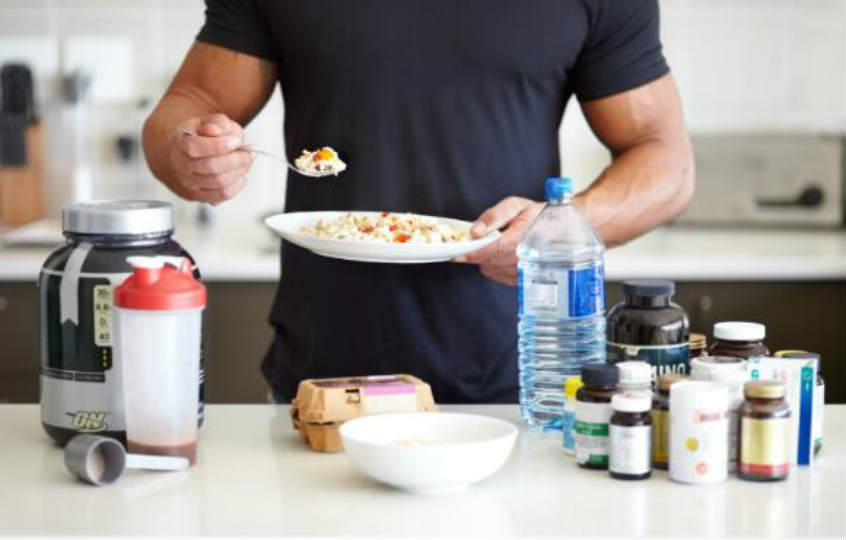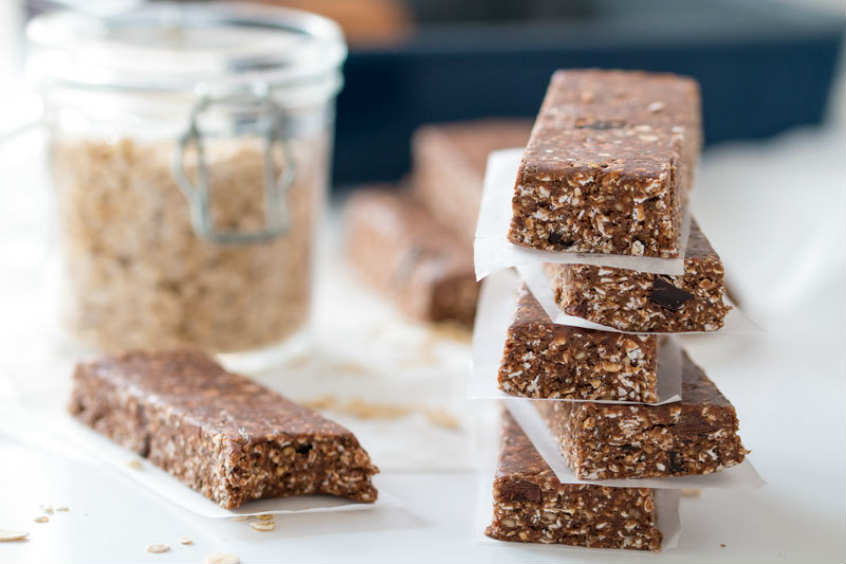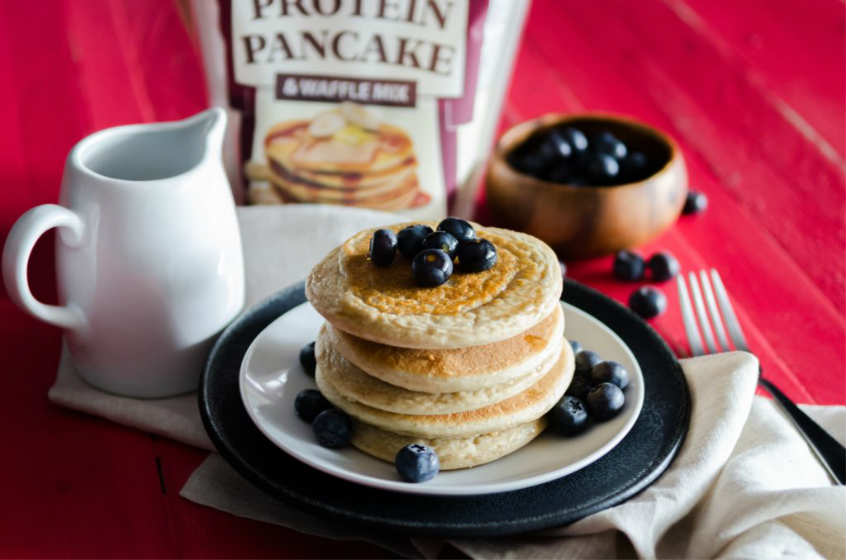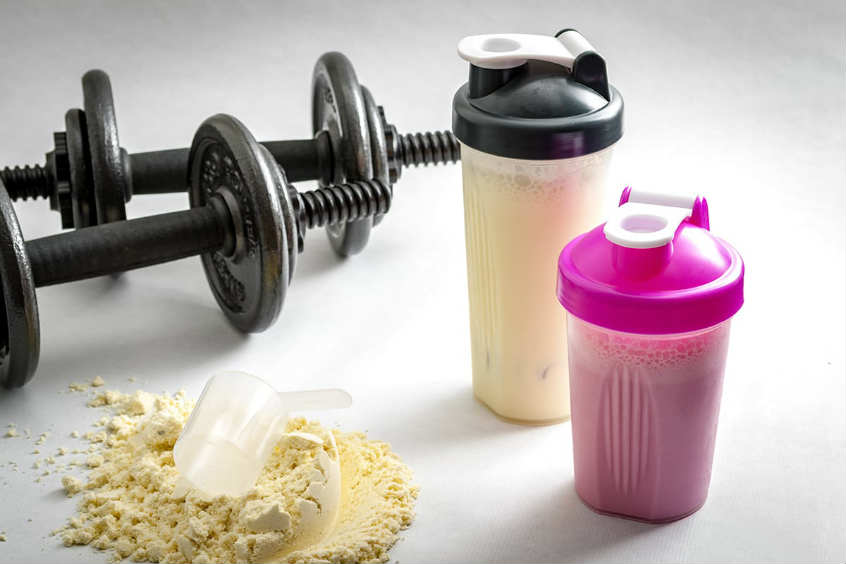
No Protein, No Gain – How to Increase Your Intake?
When it comes to getting in shape and staying healthy, there is no secret formula – proper diet and regular exercise are a must! Sticking to a nutrient-rich diet will give you the energy needed to work out and get on with the rest of your daily activities and will also help you lose weight. What you eat is also important if you are looking to build muscle. Eating protein will help you gain strength and build muscle mass.
But don’t assume that just by eating more protein you will gain muscle mass. Exercising and weight training, as well as sticking to a nutritious and balanced diet including fruits, vegetables and complex carbohydrates, are still necessary to build muscle. Protein is made of amino acids that aid and cause many of the processes and reactions in your body. Exercising and lifting weights result in tiny micro-tears in your muscles. When you eat protein, your body uses those amino acids to repair the small tears. Amino acids fill the tears, making your muscles bigger and stronger.

How Much Protein Do You Need?
It’s important to consume only the recommended amount of protein to achieve the wanted results. If you take too little, your body could take longer to build muscle. But eating too much of it isn’t good as well because it could lead to dehydration, increasing your risk of developing kidney stones, and ending up gaining weight from fat, not muscle. Like with everything, it’s necessary to find a balance and consume the right amount for your needs.
The average recommendation for people who exercise regularly is 0.8 grams per kilogram of body weight. This means that a person weighing 70 kilos should eat 56 grams of protein per day. However, how much protein you specifically need to eat every day will also depend on your current weight, height, gender, and how much you work out. Women usually need less protein than men. To get the right amount for you, consult with a registered nutritionist or dietician.
Although eating whole foods with naturally occurring protein is best for your body, for some people, it isn’t always possible. In these cases, you can also get your protein from protein bars, protein pancake mixes, and protein shakes.

Protein Bars
You’re probably wondering can I eat protein bar as a meal replacement. Well, yes and no. This snack is a convenient and quick way to add protein and other nutrients to a busy and active lifestyle, however, you should use it as a fuel in between meals, not as a meal replacement.
The nutrient composition of protein bars available on the market can differ significantly between brands and even flavours. This is mostly due to the varying ingredients. Generally, protein snack bars are made from dates and dry fruit, seeds, nuts and whole grains like quinoa and oats. They contain about 150-400 calories and 10-20 grams of protein, with some containing up to 30 grams of protein per serving. They can contain 5-10 grams of fat, 25-35 grams of carbs, and 5-10 grams of fibre. Besides offering protein and carbs, many protein bars are a good source of micronutrients such as B vitamins, calcium, potassium and iron.
The source of protein can also vary. Some bars include yogurt powder milk or dairy proteins like whey and casein, while others use plant-based sources like soy, pea or brown rice. Some can contain egg whites, while others rely on nuts and seed as the main protein source.
When to eat protein bars? All the ingredients in protein bars can provide the needed energy to get you through your workout session. They also provide the post-workout nutrition your body needs to repair and build new muscle tissue.

Protein Pancake Mix
You can think of pancakes as part of your fitness diet. Protein pancake mixes are formulated to support the high requirements of athletes, including bodybuilders and individuals with an active lifestyle. These mixes are super easy to prepare too, which means you can have a nutrient-rich food in a matter of minutes. To prepare a batch of the pancakes, mix 1 scoop of the protein pancake with 100ml milk or water. Blend it well until it resembles a conventional pancake batter. Put it in a non-stick pan and cook it on medium heat until it becomes golden brown on both sides.

Protein Shake
Protein shakes are another great way to increase protein intake. These drinks are made by combining protein powder with water, although other ingredients can be often added as well. Some of the most popular types of protein powder include:
- Whey protein (dairy-based, quickly absorbed, contains all the essential amino acids);
- Casein protein (dairy-based, slow absorbed, contains all essential amino acids);
- Soy protein (plant-based, contains all the essential amino acids);
Hemp protein (plant-based, high in omega 3 and 6, low in amino acids); - Rice protein (plant-based, low in amino acids);
- Pea protein (plant-based, low in amino acids).
For individuals who find it challenging to meet the required protein intake for muscle growth, especially vegans and vegetarians, protein powders offer an easy solution to the problem. You can mix protein powder with water according to the directions on the package. You can also blend it with milk, fruit or vegetable to create a delicious smoothie. Put it in a tall glass and indulge!


No Comments